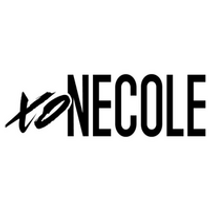Celebrity News

Ad
Sunny Hostin is many things such as a lawyer, journalist, co-host of The View, and she is also an Afro-Latina who fully embraces her blackness. Sunny’s mother is Puerto Rican and her father is African-American and growing up, the 53-year-old author dealt with constant questions about her identity.
In an interview with People, she opened up about her celebrating her identity as an Afro-Latina and others she admires in the industry that are bringing awareness to their culture. "I had a difficult childhood. Not because of my nuclear family — we are still very close," she said. "But it was just the stares and the question[s]. I was asked things like, am I Samoan? ... 'Why is your hair so curly? Where do you get that from?' Just weird things that, as a child, you're 7 and you're 8, and then you're being called things like 'zebra.' That's tough and it's traumatic."
Even as an adult, she is met with questions and criticism for how she defines herself, but she doesn’t mind taking time out of her day to school people. "I get, 'Are you Spanish today or Black today?'" she said of the social media comments she receives.
"Every day I'm both, actually. And that's how I respond because I think it's important to respond [to comments like], 'Sunny's saying it with the Spanish accent.' Well, no I'm saying it correctly because this is a Spanish word. It's not an English word. It's a Spanish word and I speak Spanish."
She added, "People are pretty hateful sometimes. But if I see, or my team flags... I do respond because I think it's important."
She’s even had some vulnerable moments like when she opened up to her The View co-hosts about being harassed during the 4th of July holiday. “We were there celebrating, and some kids, about 20 of them, ran in front of our home and started yelling the N-word at us,” she said about the incident. “I have a video, of sort of the aftermath, when we realized they were targeting us.”
She went into more detail about the incident after noting that the police were helpful. “They said, ‘This is America, we are patriots, this is our holiday’ — things like that,” she explained. ” … You know, the African-American community does have a feeling, many of my friends included, on July 4th because African-Americans weren’t emancipated on July 4th. They weren’t independent then.”
Over the course of her career, Sunny has worked to be a voice for Afro-Latinos, and more people are following in her footsteps, which makes the lawyer feel like she’s no longer in the fight by herself.
"I admire that there are folks, especially in media, as well as film, that are representing their Blackness and embracing it," she said. "That's something that has just happened [in] my view in the past few years. And what's nice is I'm tired of being alone in that. I'm no longer alone and it's because of young people like Ariana."
Here is a list of some Afro-Latinos speaking out for the culture.
Ariana DeBose
“I’m very grateful that Stephen Spielberg and Tony Christian invited me to the table, and validated my lived experience by allowing my experience as a Black woman, an Afro-Latina, to inform this character. It allows this character to stand on her own two feet because she is so massively different from Anitas we have seen before just by that one fact. The way that she walks through the world is going to be different than a beautiful white-presenting Latina would.” - Ariana DeBose said about her Oscar-nominated role as Anita in West Side Story
Gina Torres
“I was very specific about reinventing Jessica’s mythology and making sure, for the first time in my life, I would actually be playing an Afro-Latina character. In the past, it was never an issue for me because I wasn’t in a position of power, but now, in this instance, I was, and I got to say, ‘this is who she is and we are going to reintroduce her to the world as a proud Afro-Latina character.’” - Gina Torres said about starring in her own show Pearson.
Amara La Negra
"I'm grateful for that moment because that moment gave me the possibilities of starting the conversation for the Afro-Latino community for those who didn't know about us, for those that didn't know that we exist, for those that didn't know that there was Black people that spoke Spanish. Thanks to that moment, a lot of people became inspired, motivated to get to know about their backgrounds, to get to know about their race, to get to know about their culture, and now they feel proud of it.” - Amara La Negra said about the criticism she faced as an Afro-Latina on Love and Hip Hop: Miami.
MJ Rodriguez
"I'm speaking to a multitude of people, and the reason why I say that is because I'm at the intersectionality of African-American, Black, and Latina. So I definitely do think it's changing the narrative. I do think it's opening the scope a little bit more, even in the Hispanic and Latina community, because so many people only focus on just those sides of being Latina, Hispanic, and not understanding that there is a deep heritage and a deep-rootedness. So I like speaking on all the pieces of me." MJ Rodriguez toldPeople.
Featured image by Mike Coppola/Getty Images for American Heart Association
ALSO ON XONECOLE


